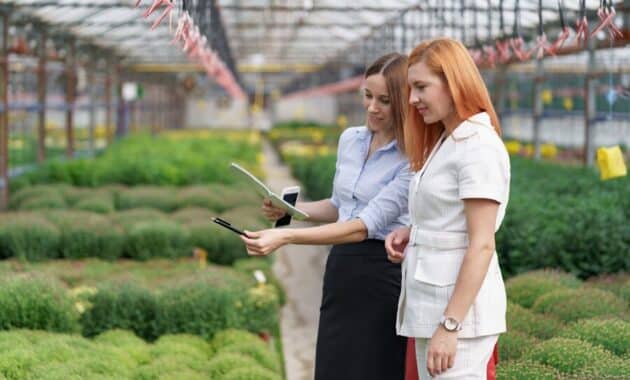Farm insurance plays a critical role in ensuring agricultural businesses can thrive despite the many risks they face. From crop failure due to weather events to equipment damage, farms encounter unique challenges that can financially impact their operations. This guide covers the essentials of farm insurance, its types, the benefits it provides, and tips on selecting the right coverage for your farm.
What is Farm Insurance?

Farm insurance is a specialized insurance policy designed to protect farmers, ranchers, and agricultural businesses from financial losses due to a range of risks. Unlike standard home or business insurance, farm insurance covers both personal and commercial assets, offering a unique blend of protection. Policies are highly customizable, covering everything from the farmer’s home and personal property to livestock, equipment, and crops.
Why Farm Insurance is Essential
Farming and agriculture are inherently unpredictable industries, exposed to variables like weather, market fluctuations, and natural disasters. Without insurance, a single incident could devastate a farm’s financial stability. Farm insurance helps mitigate these risks by providing coverage for losses, helping farmers manage their business with peace of mind.
Types of Farm Insurance Coverage

There are several types of coverage available within farm insurance policies. Here’s a breakdown of the main options:
Property Insurance
Property insurance covers physical assets on the farm, including buildings, equipment, and inventory. This may include barns, storage facilities, tractors, and other machinery essential for farm operations. It protects against perils such as fire, theft, vandalism, and natural disasters.
Liability Insurance
Liability insurance is crucial for any farm business, as it protects against lawsuits or claims if someone is injured on the property or if there is accidental damage to another’s property. This includes coverage for visitors, contractors, and employees who may work on the farm.
Crop Insurance
Crop insurance safeguards farmers against financial losses from crop damage or failure. This type of insurance is often divided into two categories:
Yield Protection: Covers losses due to adverse weather, diseases, or pests that reduce yield.
Revenue Protection: Compensates farmers for losses when the market price of crops drops significantly.
Livestock Insurance
Livestock insurance covers animals that are essential to the farm’s operation, such as cattle, sheep, or poultry. Policies may cover animal deaths due to accidents, diseases, or natural disasters, and in some cases, theft.
Farm Equipment Insurance
This type of insurance covers essential machinery and tools, including tractors, harvesters, and irrigation systems. Equipment is often expensive, and repairs or replacements can be costly, making this insurance essential for farm operations.
Farm Auto Insurance
Farms often require trucks or specialized vehicles to transport goods and livestock. Farm auto insurance covers these vehicles, protecting against accidents, liability, and vehicle damage.
Income Loss Insurance
Some policies offer income loss insurance, which compensates the farmer for lost income during periods when operations are disrupted by covered events, like severe storms or equipment failure.
How to Choose the Right Farm Insurance Policy

Choosing the right insurance policy for a farm is highly personalized, as each farm has unique needs. Here are some key steps:
Assess Your Risks: Identify the most significant risks to your farm. For example, if you are in an area prone to drought, crop insurance might be critical. If your farm relies heavily on machinery, equipment insurance is a priority.
Determine Your Coverage Needs: Decide which assets need coverage, including property, equipment, livestock, and crops. Factor in your farm’s budget, and be realistic about the protection needed to ensure long-term stability.
Compare Policies: Contact multiple insurance providers, compare their policy offerings, and inquire about any exclusions or limitations in coverage.
Consult an Insurance Agent: Working with an experienced agent who specializes in farm insurance can provide valuable insight into your options and help customize a policy that best meets your needs.
Review and Update Annually: Farming needs and assets change regularly, so it’s essential to review your coverage annually to ensure it aligns with your current needs.
Benefits of Farm Insurance
Farm insurance provides peace of mind and financial protection, enabling farmers to focus on productivity without constantly worrying about potential losses. Some key benefits include:
Risk Mitigation: Farm insurance reduces the impact of financial losses due to unforeseen events.
Operational Continuity: Insurance helps ensure operations continue even after setbacks, with income loss coverage and funds for repairs or replacements.
Employee Protection: Liability insurance covers injuries on the farm, creating a safer environment for employees and visitors.
Also Read : How Can National Insurance Help You Build A Secure Future?
Conclusion
Farm insurance is a vital tool for agricultural success, offering farmers a lifeline when unexpected challenges arise. By understanding the various types of coverage available and carefully selecting policies tailored to their needs, farmers can protect their livelihood, ensuring their operations remain stable and profitable. Investing in farm insurance safeguards both the present and the future of the farm, providing peace of mind to farmers, their families, and their communities.
FAQs: Farm Insurance
Q1: What is the difference between farm insurance and regular home insurance?
A: Farm insurance covers both personal and commercial assets on the farm, while home insurance typically only covers personal property. Farm insurance is tailored for agricultural needs, covering buildings, equipment, crops, and livestock that are essential for farming.
Q2: Is crop insurance mandatory for farmers?
A: Crop insurance is not mandatory, but it’s highly recommended, especially for farmers in areas susceptible to adverse weather. Crop insurance protects against financial loss from crop damage or failure.
Q3: Can I bundle farm insurance policies?
A: Yes, many insurers offer bundling options that allow farmers to combine different types of coverage into one policy. This can simplify management and often reduces premiums.
Q4: What does livestock insurance cover?
A: Livestock insurance typically covers animal deaths due to accidents, diseases, natural disasters, and sometimes theft. Coverage may vary depending on the provider and policy specifics.
Q5: How much does farm insurance cost?
A: The cost of farm insurance varies based on factors like farm size, location, types of coverage, and the value of assets insured. Speaking to multiple insurers and comparing quotes is recommended.
Q6: Is farm equipment automatically covered under property insurance?
A: Not always. Some property insurance policies include equipment coverage, while others require separate farm equipment insurance. Be sure to clarify this with your provider.
Q7: Does farm insurance cover farm workers?
A: Basic liability coverage protects farm workers in case of injuries, but it’s advised to have additional worker’s compensation insurance for broader protection.
Q8: Can farm insurance policies cover leased land?
A: Yes, farm insurance can cover leased land, but it’s essential to review the terms with your insurance provider to ensure that all leased assets are included.
Q9: How often should farm insurance policies be reviewed?
A: Policies should be reviewed annually, especially if the farm acquires new assets or experiences changes in operations, which might impact coverage needs.
Q10: What should I do if a natural disaster damages my farm?
A: Contact your insurance provider immediately to report the incident and begin the claims process. Having updated records and a detailed inventory of assets can streamline claims.




